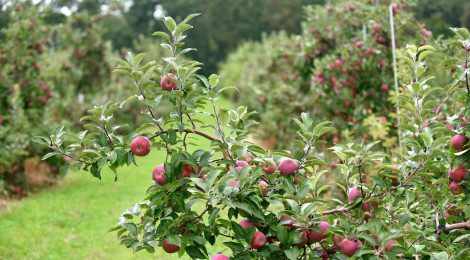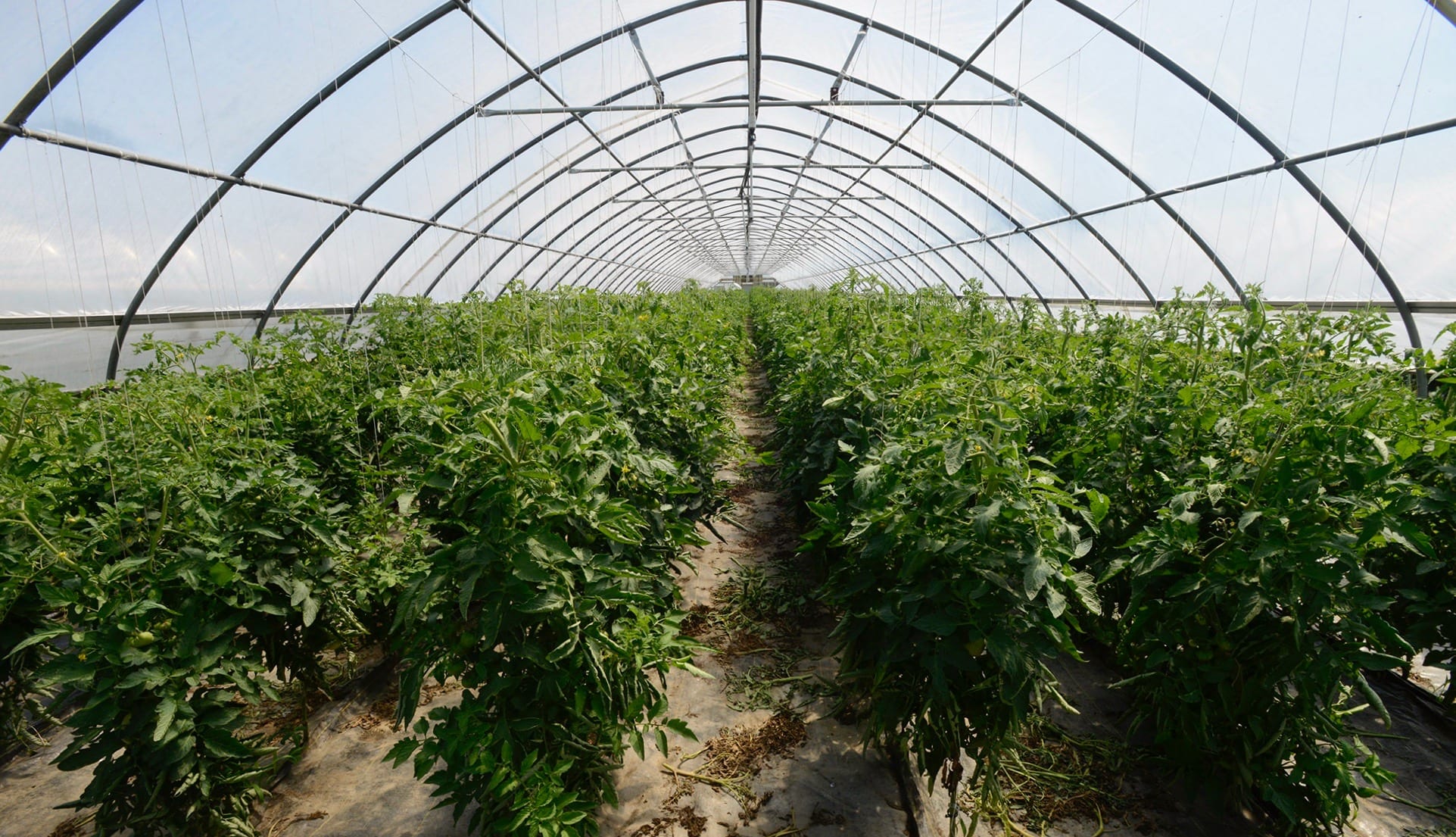
Food Vision Prize
Prize Project Update Part 1: Farming More Land and Extending the Season
Since winning the New England Food Vision Prize in 2018, dining services leaders at Harvard, Boston College, and Tufts College have been hard at work collaborating with their produce vendor, Costa, and New Entry Sustainable Farming Project to identify farmers who may be willing to partner on their project, Farming More Land and Extending the Season. Prize Funds are being used to incentivize farms to produce and store crops that the schools have identified as high need and high volume. What the farms require to meet the increased demand – the team suspected – would vary across farms.
They were right. From the initial list of sixteen farmers that expressed interest after a Request for Proposals went out in Spring 2019, the team selected a subset of six to engage in one-on-one conversations with to determine logistics, capacity, and needs to meet the demand. Requests ranged from funds to rent an additional acre of land, funds to help purchase an irrigation well, a portion of the cost of building high tunnels to grow spinach, or caterpillar tunnels to raise kale and peppers year-round, among others.
“We were looking for large-scale production of things like peppers, cucumbers, dark leafy greens, and beets,” said Crista Martin, Director of Strategic Initiatives & Communications at Harvard University Dining Services. “The farmers we engaged with checked all the boxes and engaging in those conversations helped us evolve the idea even more.”
On a trip to Queen’s Greens in Amherst, MA (one of the facilities selected as a partner in the project), Christa Martin traveled out with members of the project team, including Julianne Stelmaszyk, Manager of Regional and Sustainable Food Systems at Boston College Dining Services. The funds at Queen’s Greens will go towards building more year-round structures so that they can provide produce to the schools year-round. All of the produce will flow through the schools’ shared vendor, Costa.
Having a shared vendor is key to the success of the project, enabling all of the schools to buy from a few farms as a trio, instead of placing separate orders and doing separate pickups and processing. Costa has also been a flexible partner throughout the process, nimble enough to adapt processing standards to meet each school’s requirements—for example, Harvard needs butternut squash to arrive on campus, washed, peeled, and diced.
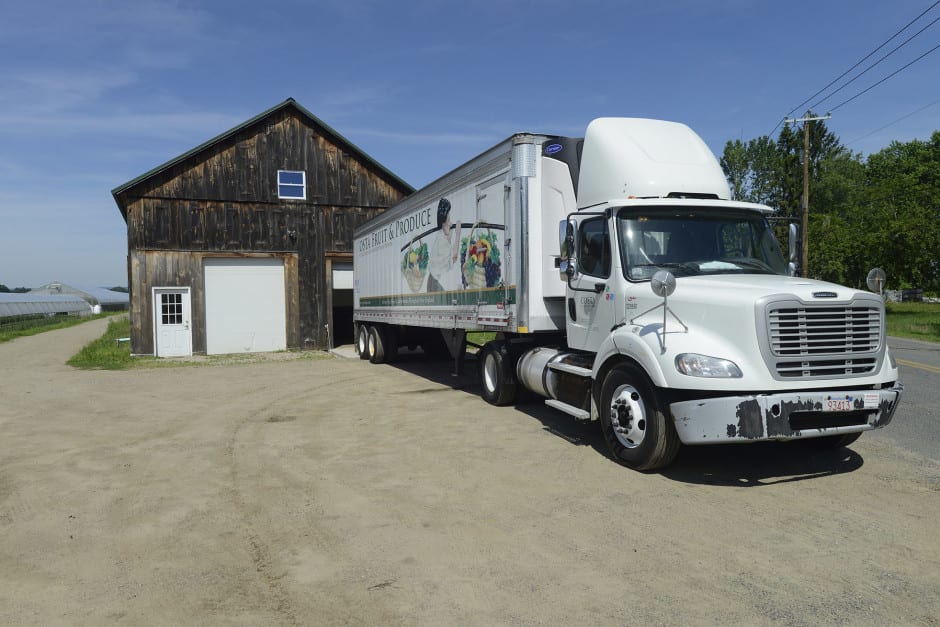
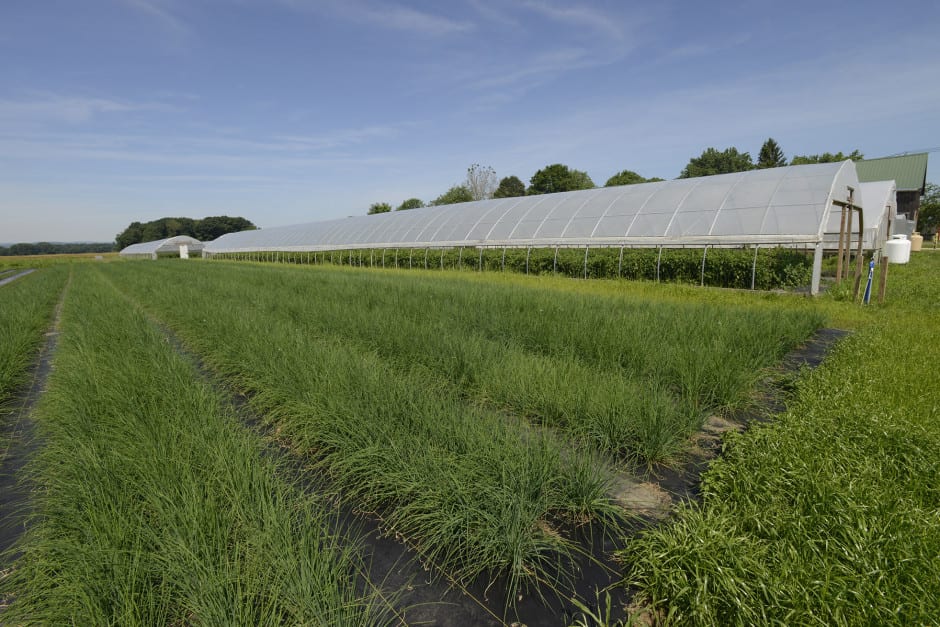
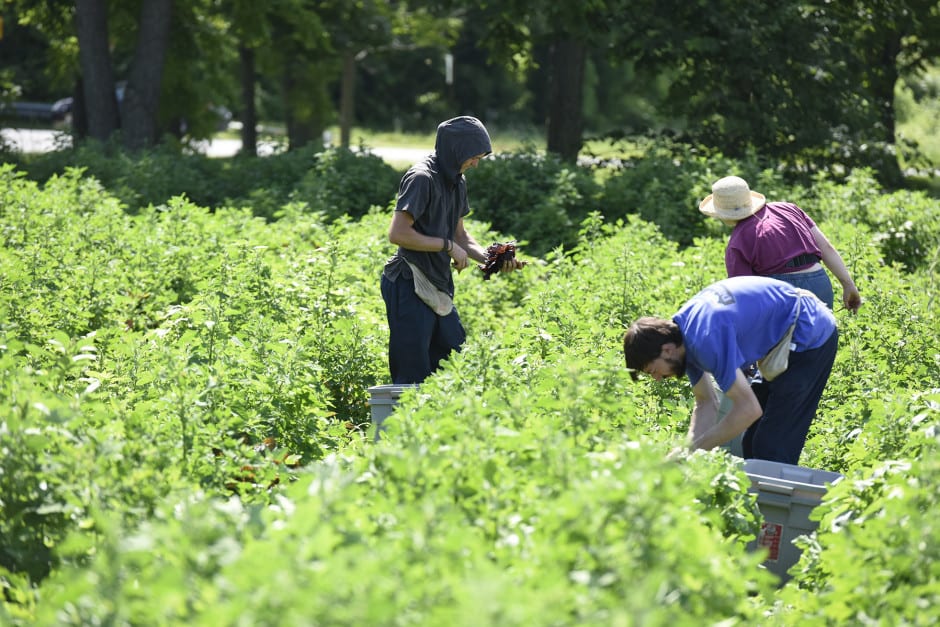
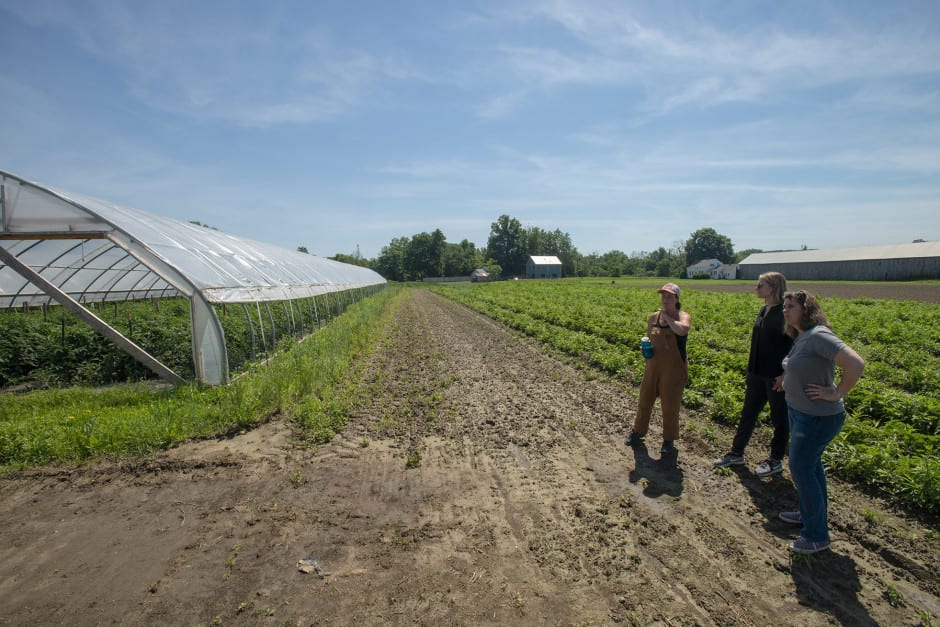
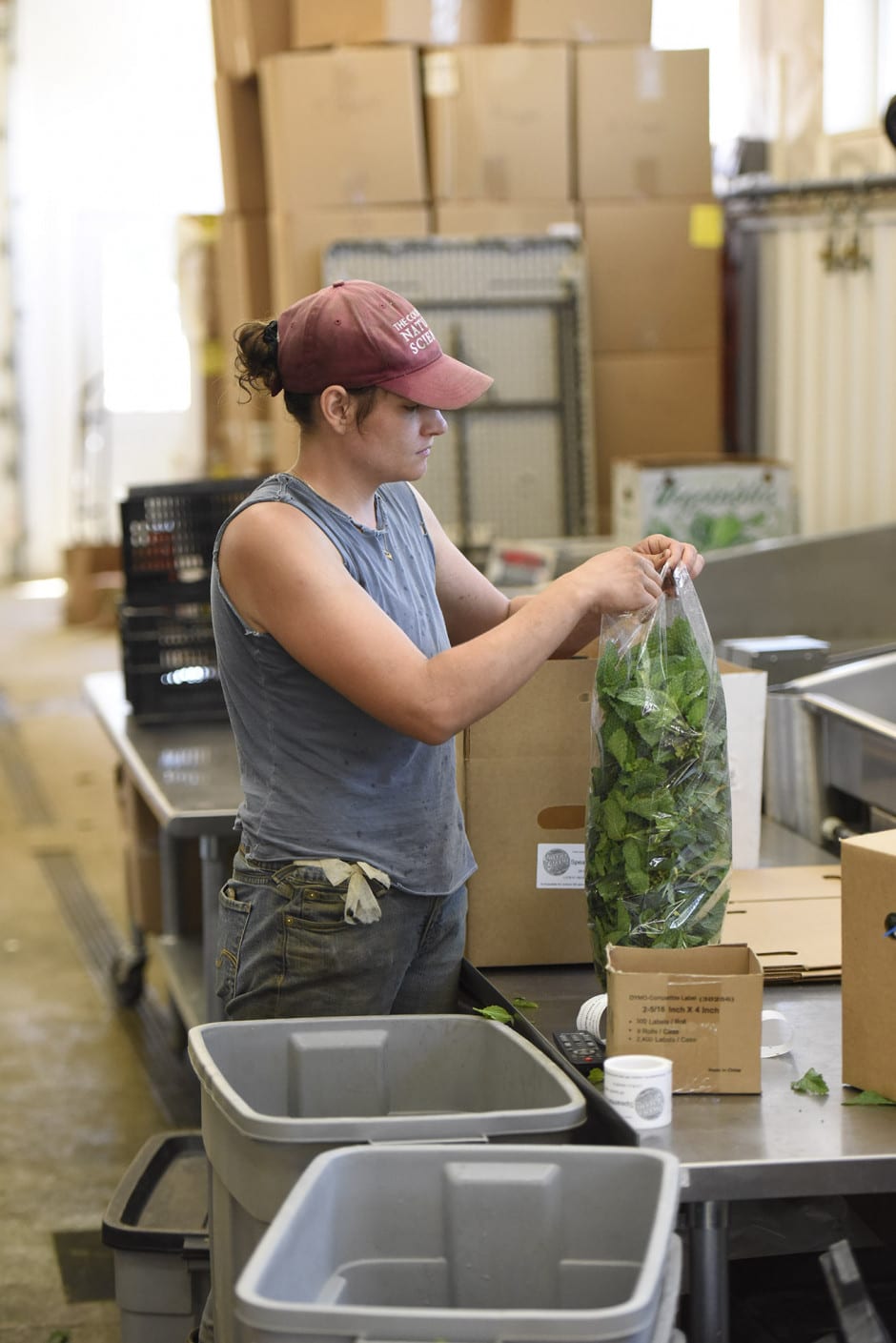
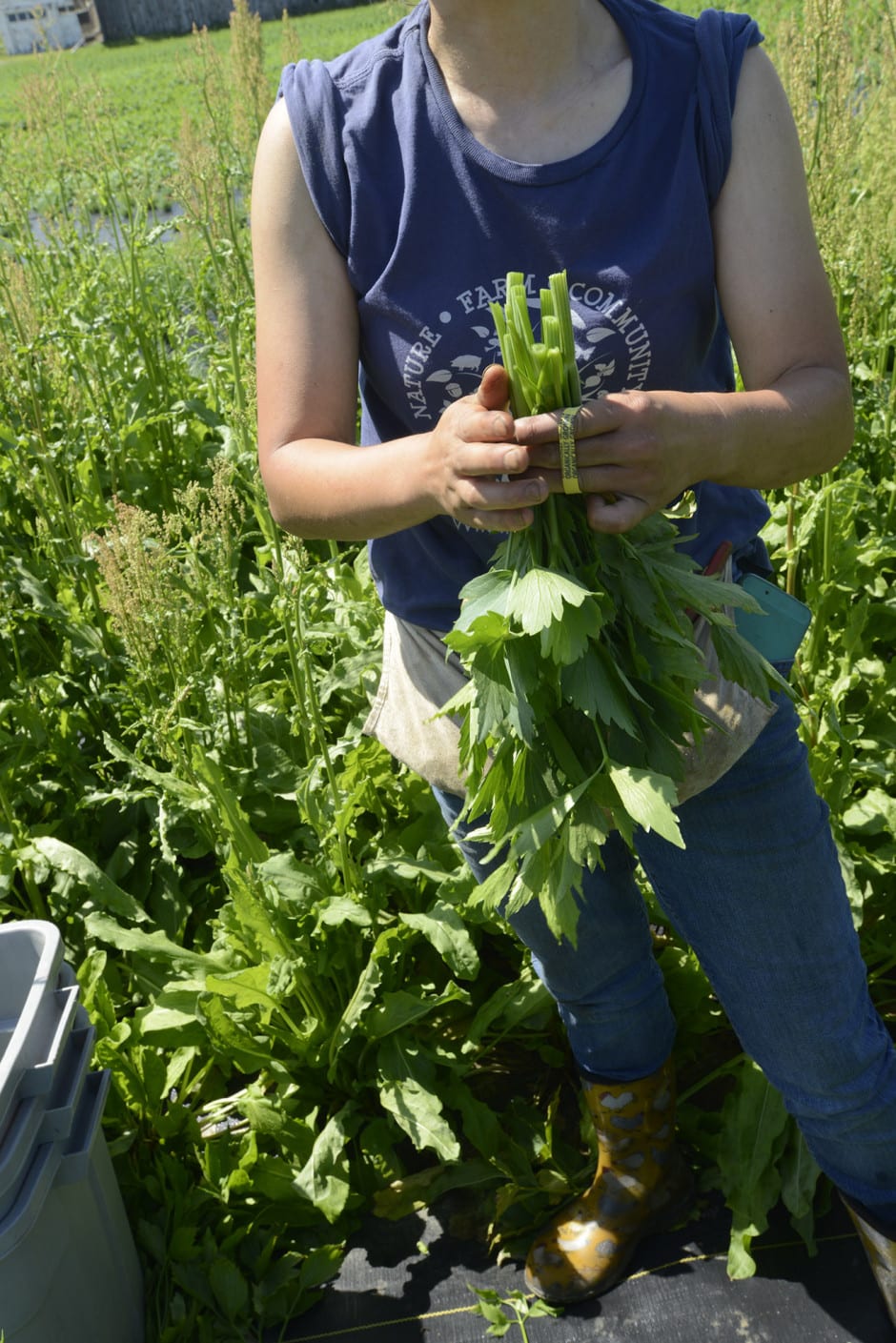
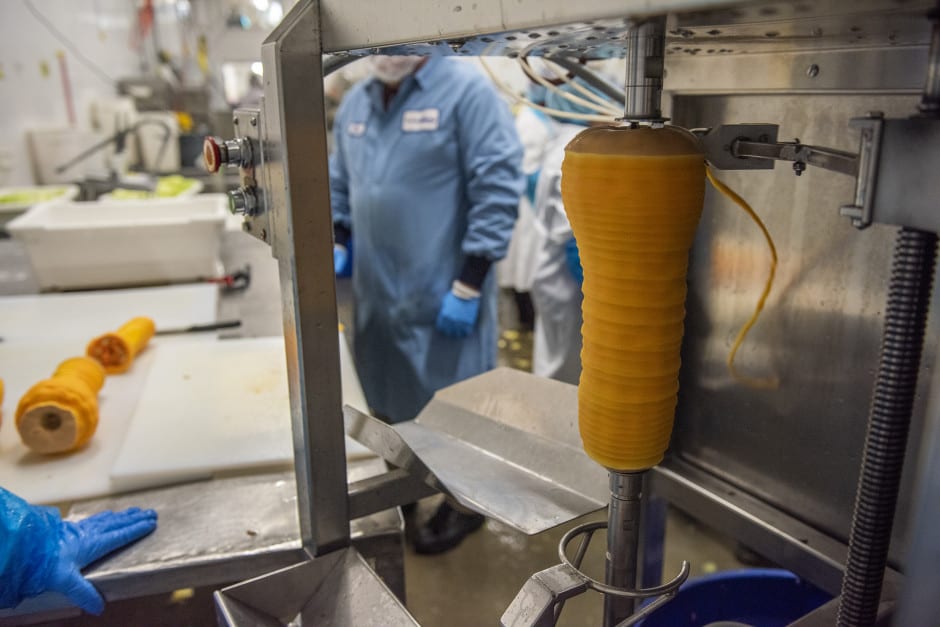
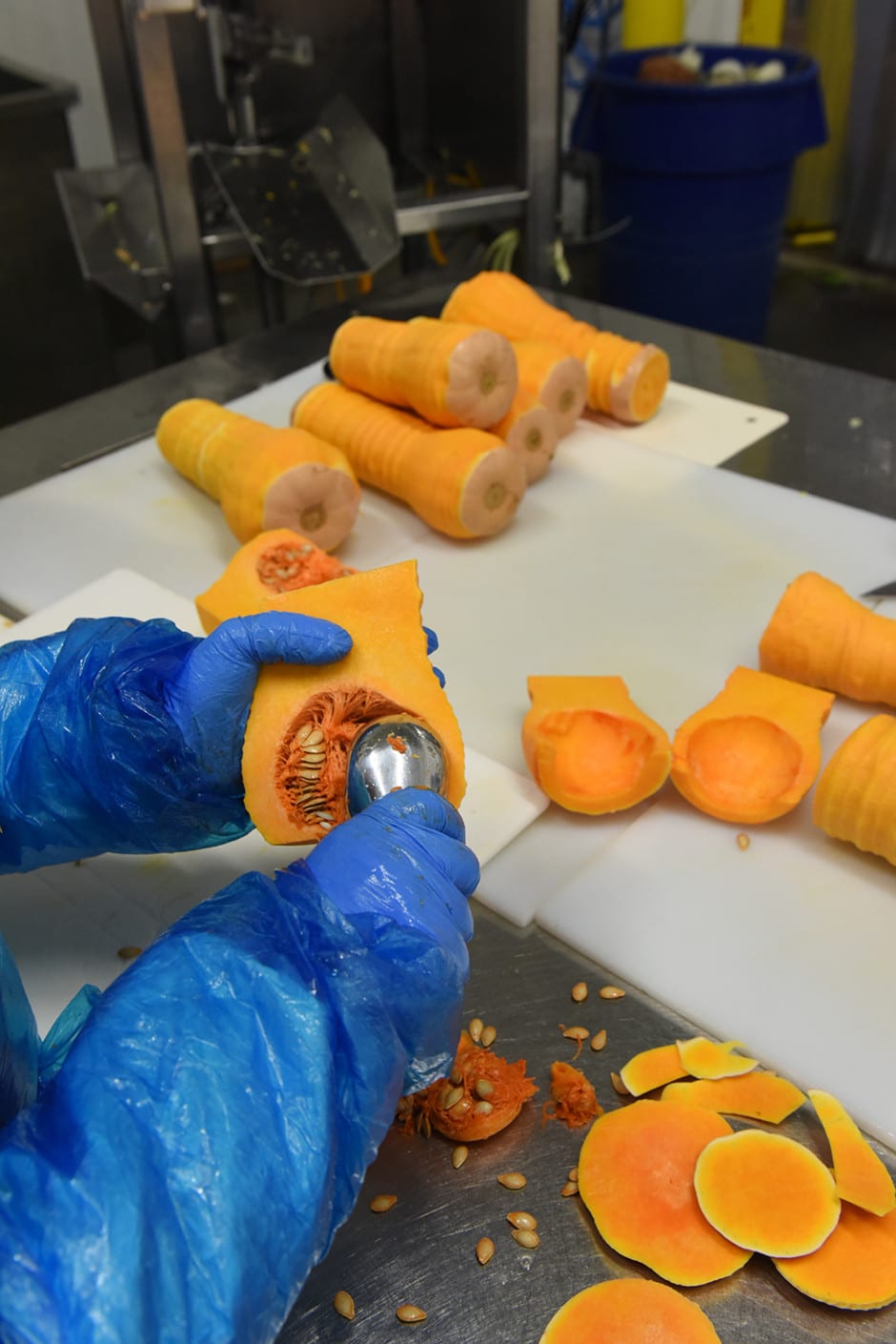
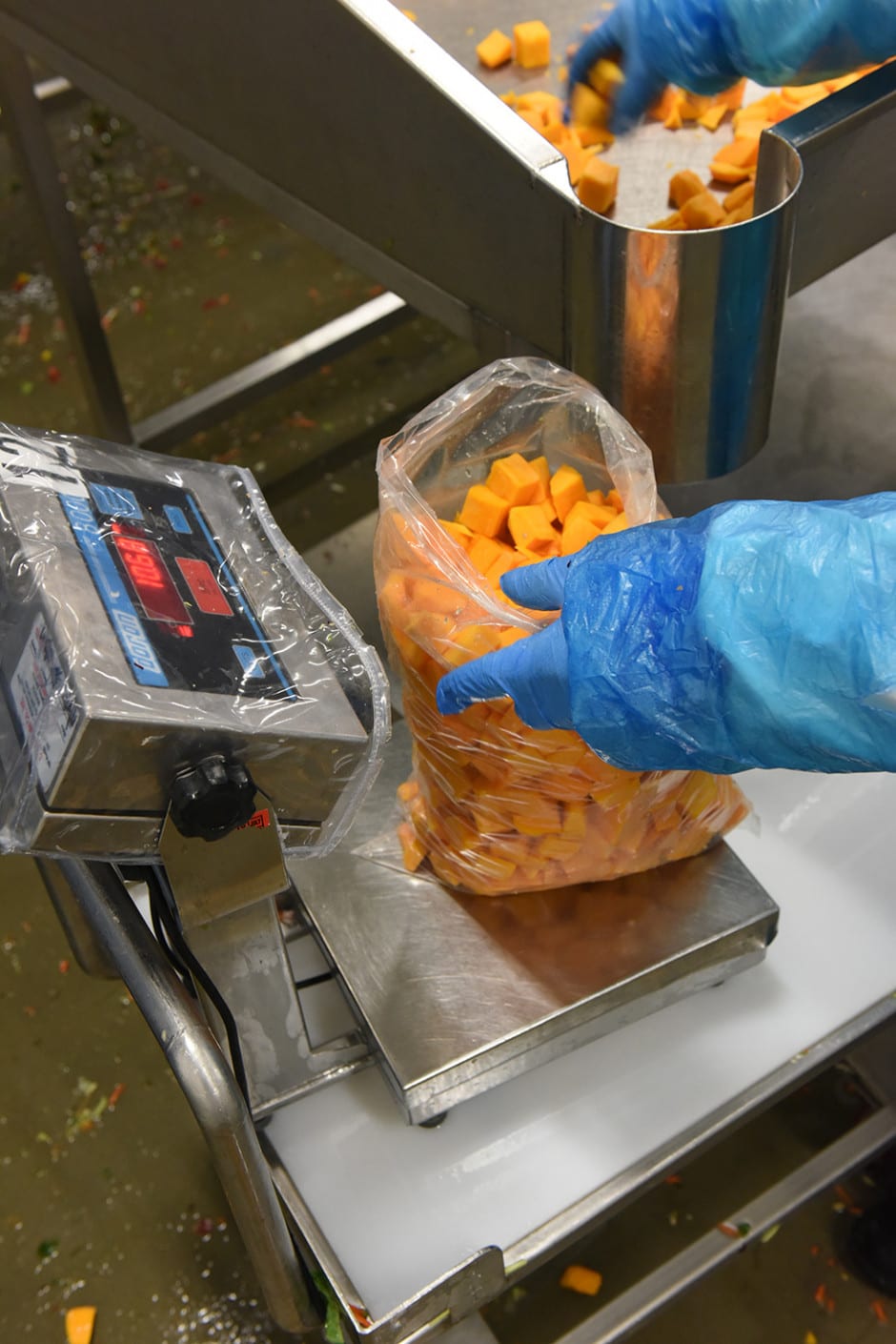
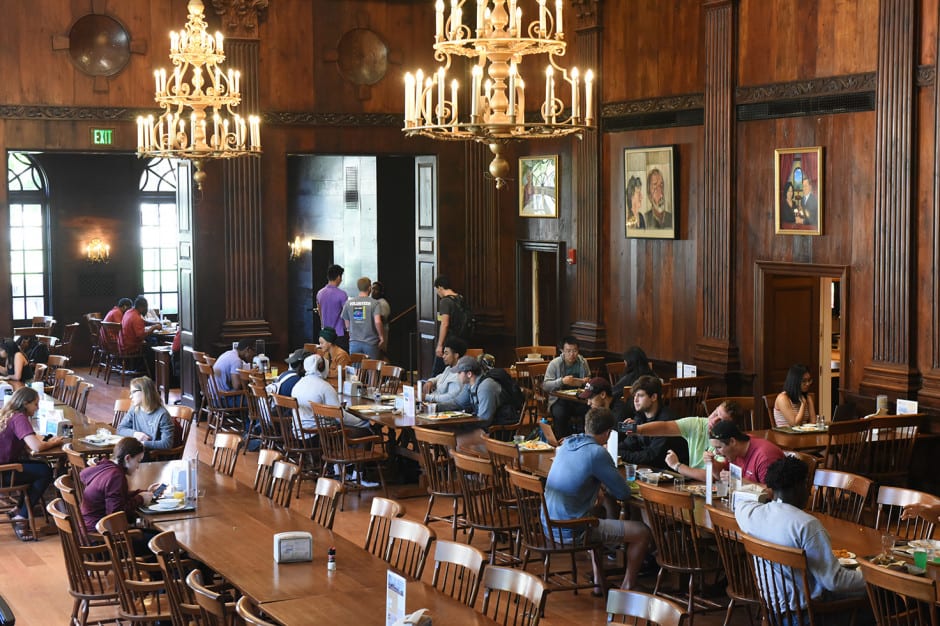
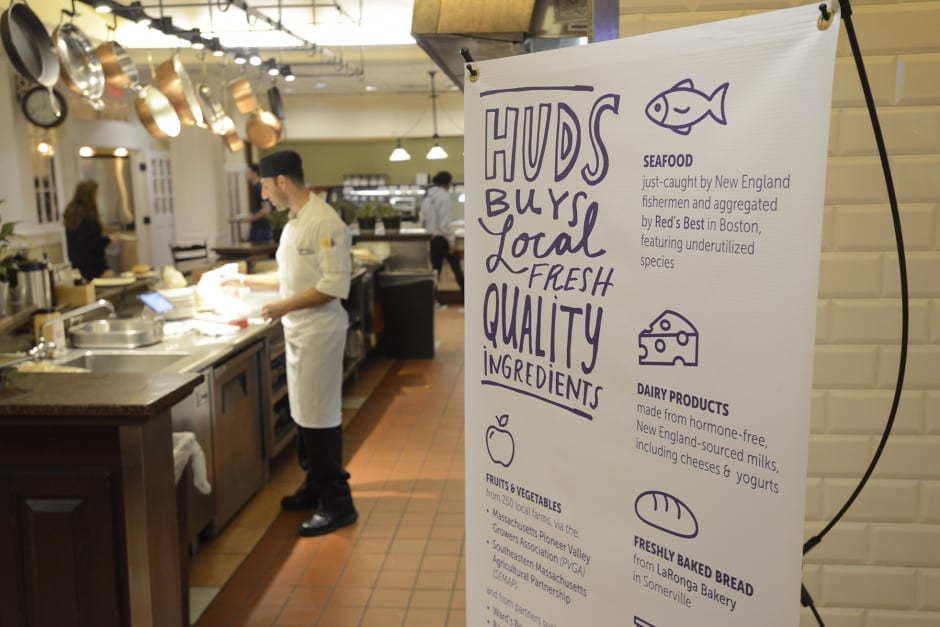
Farmers were so eager for the partnership opportunity that there are already crops in the ground based on the initial conversations, and even as they finalize agreements for infrastructure and equipment purchases to allow for year-round harvest, there may be crops ready for harvest by the end of the Fall semester. Martin remarked that they, “found that the farms were ready, willing, and able much sooner than we could’ve expected.”
“It’s a win on many levels,” said Julianne Stelmaszyk, Manager of Regional & Sustainable Food Systems at Boston College. “The farmers receive the commitment and support they need to produce at higher levels and the institutions receive more product from local farmers. It’s a game changer for them and us.”
Once the produce is on these campuses, the institutions involved will make a point to show their communities the impact that they can make by supporting the local food system. According to Martin at Harvard, “We have students from all over the country—all over the world—and we want them to be aware of what is unique about the New England food system while they are living here.” At BC, students who grew up in New Englander are also kept in mind. “At BC we have students from Massachusetts who may not even have a knowledge of the New England food system, so we aim to expand the knowledge of the locals as well,” explained Stelmaszyk.
With the first round of produce entering the dining halls at these institutions this year, Martin and Stelmaszyk are anticipating a great reception from their respective communities and are looking forward to furthering the ties between the farms they will partner with on this project.
